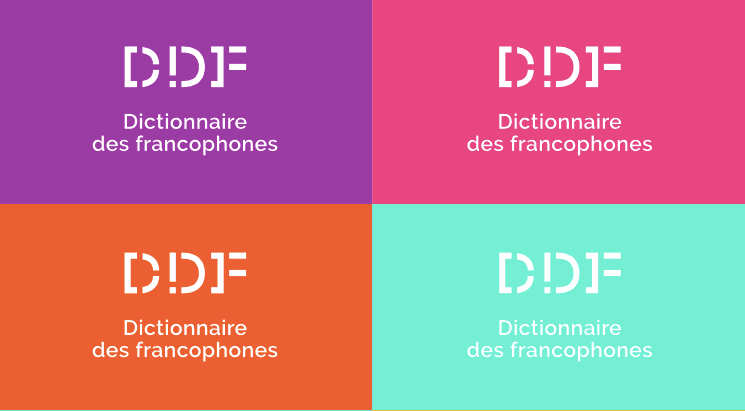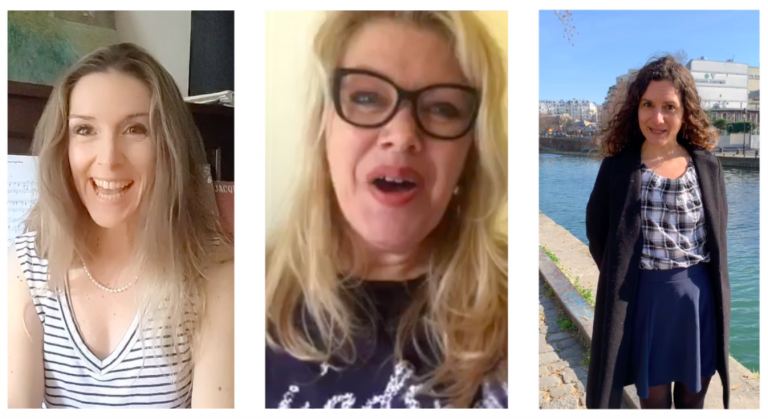Le Dictionnaire des Francophones / The Francophone Dictionary
Spoken by 300 million speakers around the world, the French language is a world language, which flourishes in all continents, with its accents, its regional expressions and particularities.
“Le Dictionnaire des Francophones” is an initiative of the President of the French Republic Emmanuel Macron aimed to give an account of the plurality of the French language.
The project was led by the Ministry of Culture with the support of a scientific council on the French language and various actors of the Francophonie including the General Delegation
to the French language and languages of France (DGLFLF) and the International Institute for Francophonie of the University Jean Moulin III.
Available since March 2021, it is a digital and collaborative tool that is meant to be as complete and accessible as possible.
Parlé par 300 millions de locuteurs dans le monde, la langue française est une langue monde, qui s’épanouit dans tous les continents, avec ses accents, ses tournures et particularités régionales. Le Dictionnaire des francophones est une initiative du Président de la République Française Emmanuel Macron pour faire vivre le français au pluriel.
Le projet a été mené par le ministère de la culture accompagné d’un conseil scientifique sur le langage et de différents acteurs de la Francophonie dont la Délégation générale à la langue française et aux langues de France (DGLFLF) et l’Institut internationale pour la francophonie de l’Université Jean Moulin III. Disponible depuis mars 2021,
c’est un outil numérique et collaboratif en constante évolution pour pourvoir être le plus complet et accessible possible.
A Canadian French expression:
“Char” has been said to be one of the most famous Quebecois words in France!
“avoir vu les chars” is an expression to not be as helpless and inexperienced as it may seem. It is similar to the English expression “to not be born yesterday”.
Example: “Je vais conduire mon char”
The expression translates literally as “to have seen the cars” with “char” meaning “car”.
The Quebecois word “char” originally comes from old French.
Quebecois is a very interesting variety of French, coming originally from ancient French but also very influenced by English due to physical proximity.
The origins of Quebec French lie in the 17th and 18th-century regional varieties of early modern French, that French colonists brought to the territory.
With the onset of British rule, Quebec French became isolated from European French, leading to a retention of older pronunciations. Later, Quebec experienced increased contact between French and English speakers. As a result, the language began to borrow from both Canadian and American English.
For more comparisons between Quebecois and Metropolitan French, see this blog.
An expression from West Africa:
Djo is a slang word used in Mali, Senegal, and the Ivory Coast meaning “a male friend, boyfriend,
or a guy who thinks that they are tough and that looks like a thug”.
The word was originally borrowed from two languages spoken in West Africa;
Dyula and Bambara, in which the word means “boy”.
The use of the word to mean “boyfriend” has grown in France thanks to its use in songs
such as French-Malian singer Aya Nakamura’s 2020 song called “Jolie Nana”.
In the chorus she sings « Jolie nana recherche joli djo ».
Listen to the song here:
An expression from New Caledonia:
French has been the official language in New Caledonia since the first French presence in 1853.
The French spoken in New Caledonia however differs from that spoken in Metropolitan France in terms of the accent and expressions used.
Caledonian expressions came to be thanks to the ethnically diverse local community, comprised of 28 vernacular-spoken languages!
One commonly used expression is “Avoir la boulette” which means:
1. To be feeling good
Example: “Boulette ou quoi?” (ça va?)
2. That an engine is powerful
Example: “Ma voiture à la boulette!”
Explore the full dictionary here.



